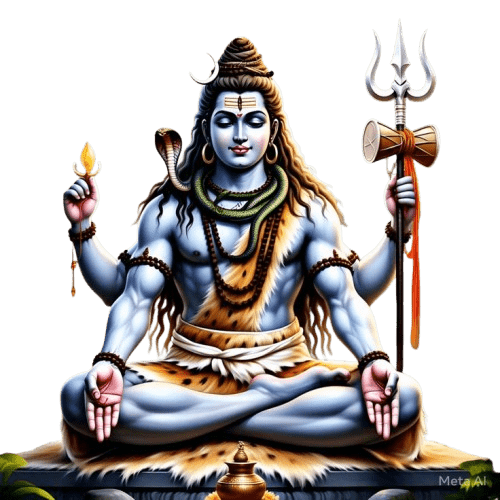
Shiva Puja is a sacred ritual dedicated to Lord Shiva, the Supreme Being in Hinduism known as the destroyer of evil and the embodiment of compassion, wisdom, and spiritual transformation. Worship of Shiva is performed with deep devotion, especially on Mondays and during the holy month of Shravan, as well as on Maha Shivaratri, the night dedicated to his divine energy.
The puja begins with a purifying bath and cleaning of the puja area. A Shiva Lingam, symbolizing Lord Shiva’s infinite and formless nature, is placed on a clean altar. Devotees perform Abhishekam (ritual bathing of the Shiva Lingam) with sacred items such as water, milk, honey, curd, ghee, sugar, and coconut water, symbolizing purification and surrender.
After the abhishekam, the Lingam is adorned with vibhuti (sacred ash), bilva (bael) leaves, flowers, and sandalwood paste. Devotees chant powerful mantras like “Om Namah Shivaya”, Maha Mrityunjaya Mantra, and recite Shiva Ashtottara Shatanamavali (108 names of Shiva) to invoke his divine blessings.
Offerings include fruits, incense, camphor, and simple sattvic food. The puja concludes with Aarti, where lamps are waved before the deity amidst the ringing of bells and devotional songs.
Shiva Puja symbolizes the destruction of ignorance, ego, and attachments, and the awakening of inner consciousness. It helps devotees seek peace, protection, health, and spiritual growth. Lord Shiva is also known for his kindness and easily pleased nature, making his worship accessible to all.
Performing Shiva Puja with sincerity and devotion brings mental clarity, removes negativity, and leads the soul toward liberation (moksha). It is a deeply transformative spiritual practice that connects the devotee with the eternal presence of the Divine.

